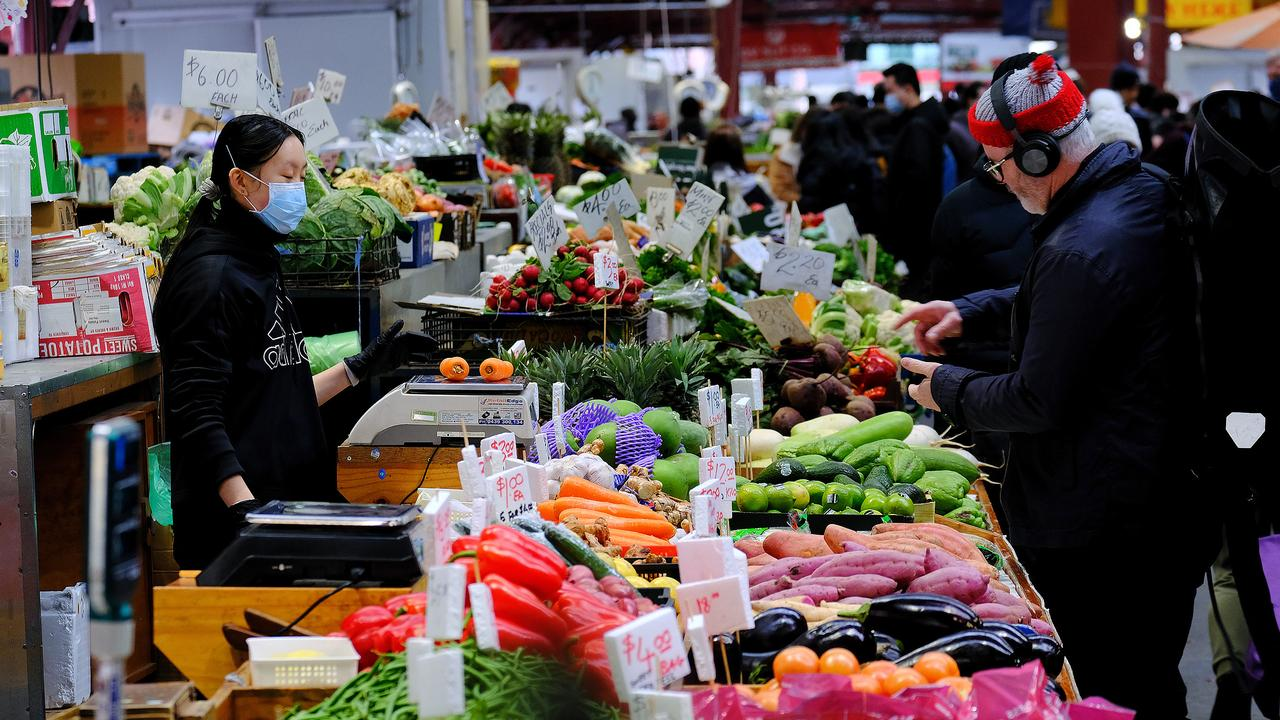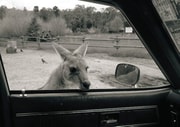Aussies could see their bills increase by $170 a week in the lead up to Christmas
By
- Replies 3
As we get closer and closer to Christmas, we’re all starting to think about what presents to buy for our loved ones, what food we will prepare, which home decorations we will display, and much more. But unfortunately, it looks like many of us will have less money to spend on them this year as the impending increases in our weekly bills will impact our budgets.
National Australia Bank’s (NAB) Consumer Sentiment Survey revealed that Aussies are expecting to spend $170 more a week on essentials, as cost of living pressures loom.
The findings indicated that gas, electricity, and water bills are the expenses that Aussies expect to climb the most, with many saying that they are expecting an increase of $76 per week on average.
The majority of the respondents also speculated that there will likely be an increase in grocery spending of about $59 more, while some shared that they might see an increase of $35 in the cost of petrol each week.

The price of necessities is anticipated to increase by approximately $200 each week, reducing disposable income before Christmas. Credit: Getty Images.
According to the most recent consumer price index data, the price of food and non-alcoholic beverages grew by 5.9 per cent in the year ending in June.
The NAB survey also measured consumer sentiment, which came in at 55.2 points in the year's third quarter, significantly below the average of 58.6.
One in two Australians are altering their behaviours to be more frugal with their money to fight the rise in the cost of living.
More than 60 per cent of Australians already choose less expensive brands or shop around for better prices on goods, and 50 per cent have reduced their takeaway orders.
While the country is benefiting from low unemployment, there are hints that a slump may be on the horizon for 2023.

According to the ABS, the cost of fruit and vegetables has increased by 7.1%, while the cost of meat has increased by 6.3%. Credit: NCA NewsWire / Luis Enrique Ascui.
Although Australia was in a great position to escape a 2023 recession, unlike many other parts of the world, the economy 'won't be immune' to a decline in growth, according to Treasurer Jim Chalmers.
The treasurer identified that the most 'problematic aspect of our inflation problem over the course of the next six or nine months’ will be the increase in energy prices.
According to Chalmers, the October budget is unlikely to protect consumers from skyrocketing prices without increasing inflationary pressure.
He added: 'When it comes to supporting for the cost of living, we need to be extremely cautious here that any cost-of-living support that we provide isn’t counter-productive.'
'We want to make sure that cost-of-living support that we provide doesn’t make the already hard job of the independent Reserve Bank even harder.'
In order to combat cost of living pressure over the 'stressful' Christmas season, Rachel Slade, group executive for personal banking at NAB, offered a piece of advice: reach out to your financial advisor for assessment.
'We know that when people get in touch with us at the first signs of financial stress, we are able to help them get back on their feet sooner.'
'In fact, our records show that 90% of people who speak to NAB Assist early are back on track within 90 days.'
If you're looking to minimise your spending on Christmas, we suggest the following tips to still enjoy the festivities without breaking the bank:
1. Set a budget - Before you start shopping, determine how much you can realistically spend on gifts, food, and decorations. This will help you stay on track and avoid overspending.
2. Shop sales - Take advantage of holiday sales to get the most bang for your buck. This is especially helpful if you’re buying big-ticket items like electronics or appliances.
3. Make your own decorations - Get creative and make your own holiday decorations. This can be a fun activity to do with kids or friends, and it’ll save you money on store-bought decorations.
4. Cut back on gifts - Instead of buying a bunch of small gifts, focus on giving a few meaningful or homemade ones. This will save you money and help reduce the clutter in your home.
5. Share the cooking - Celebrate with friends and family all bringing meals or desserts. This is a great way to cut down on the cost of food, and everyone gets to enjoy a variety of dishes.
Following these tips can help you save money this holiday season and still have a great time celebrating with loved ones. So, get creative, have fun, and enjoy the holidays.
Also, we recommend checking the Money Saving Hacks section of the SDC website to stay on top of the latest news and tips on how to get the best deals!
Do you think we'll be seeing a drastic increase in our weekly bills in the coming months? Share your thoughts with us in the comments below.
National Australia Bank’s (NAB) Consumer Sentiment Survey revealed that Aussies are expecting to spend $170 more a week on essentials, as cost of living pressures loom.
The findings indicated that gas, electricity, and water bills are the expenses that Aussies expect to climb the most, with many saying that they are expecting an increase of $76 per week on average.
The majority of the respondents also speculated that there will likely be an increase in grocery spending of about $59 more, while some shared that they might see an increase of $35 in the cost of petrol each week.
The price of necessities is anticipated to increase by approximately $200 each week, reducing disposable income before Christmas. Credit: Getty Images.
According to the most recent consumer price index data, the price of food and non-alcoholic beverages grew by 5.9 per cent in the year ending in June.
The NAB survey also measured consumer sentiment, which came in at 55.2 points in the year's third quarter, significantly below the average of 58.6.
One in two Australians are altering their behaviours to be more frugal with their money to fight the rise in the cost of living.
More than 60 per cent of Australians already choose less expensive brands or shop around for better prices on goods, and 50 per cent have reduced their takeaway orders.
While the country is benefiting from low unemployment, there are hints that a slump may be on the horizon for 2023.
According to the ABS, the cost of fruit and vegetables has increased by 7.1%, while the cost of meat has increased by 6.3%. Credit: NCA NewsWire / Luis Enrique Ascui.
Although Australia was in a great position to escape a 2023 recession, unlike many other parts of the world, the economy 'won't be immune' to a decline in growth, according to Treasurer Jim Chalmers.
The treasurer identified that the most 'problematic aspect of our inflation problem over the course of the next six or nine months’ will be the increase in energy prices.
According to Chalmers, the October budget is unlikely to protect consumers from skyrocketing prices without increasing inflationary pressure.
He added: 'When it comes to supporting for the cost of living, we need to be extremely cautious here that any cost-of-living support that we provide isn’t counter-productive.'
'We want to make sure that cost-of-living support that we provide doesn’t make the already hard job of the independent Reserve Bank even harder.'
In order to combat cost of living pressure over the 'stressful' Christmas season, Rachel Slade, group executive for personal banking at NAB, offered a piece of advice: reach out to your financial advisor for assessment.
'We know that when people get in touch with us at the first signs of financial stress, we are able to help them get back on their feet sooner.'
'In fact, our records show that 90% of people who speak to NAB Assist early are back on track within 90 days.'
If you're looking to minimise your spending on Christmas, we suggest the following tips to still enjoy the festivities without breaking the bank:
1. Set a budget - Before you start shopping, determine how much you can realistically spend on gifts, food, and decorations. This will help you stay on track and avoid overspending.
2. Shop sales - Take advantage of holiday sales to get the most bang for your buck. This is especially helpful if you’re buying big-ticket items like electronics or appliances.
3. Make your own decorations - Get creative and make your own holiday decorations. This can be a fun activity to do with kids or friends, and it’ll save you money on store-bought decorations.
4. Cut back on gifts - Instead of buying a bunch of small gifts, focus on giving a few meaningful or homemade ones. This will save you money and help reduce the clutter in your home.
5. Share the cooking - Celebrate with friends and family all bringing meals or desserts. This is a great way to cut down on the cost of food, and everyone gets to enjoy a variety of dishes.
Following these tips can help you save money this holiday season and still have a great time celebrating with loved ones. So, get creative, have fun, and enjoy the holidays.
Also, we recommend checking the Money Saving Hacks section of the SDC website to stay on top of the latest news and tips on how to get the best deals!
Do you think we'll be seeing a drastic increase in our weekly bills in the coming months? Share your thoughts with us in the comments below.







